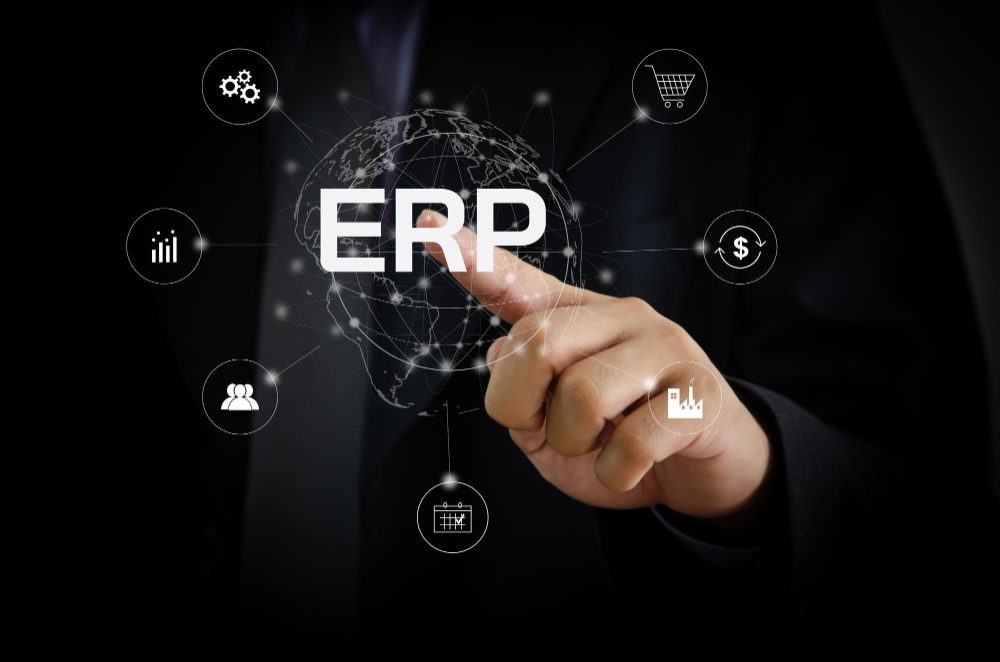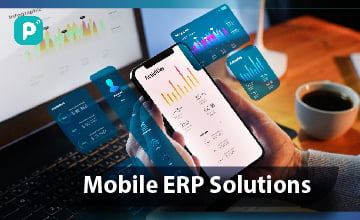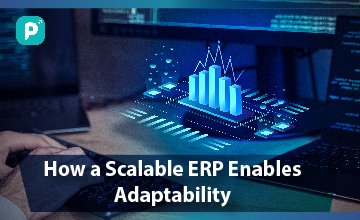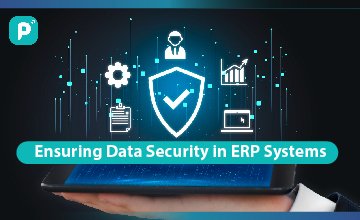What are ERP Solutions?
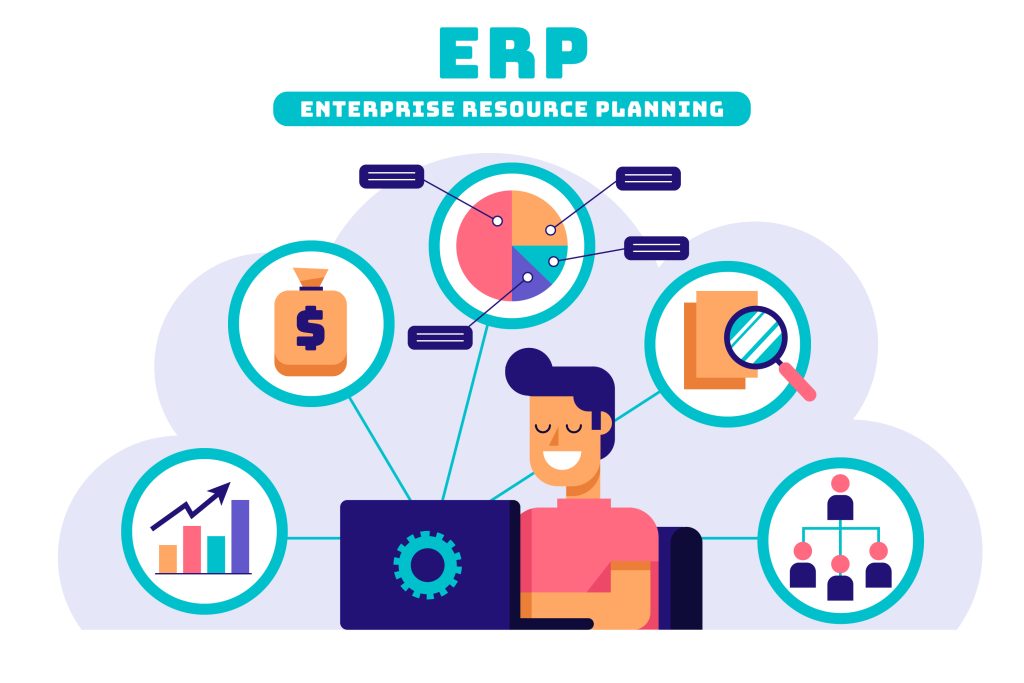
Enterprise Resource Planning (ERP) solutions are comprehensive software platforms designed to integrate and automate diverse business processes across an entire organization. They serve as a centralized system, facilitating the flow of data and information between different departments, enabling effective decision-making and resource management.
At its core, an ERP system acts as a robust database that consolidates data from various functional areas, such as finance, human resources, supply chain, manufacturing, sales, and customer relationship management. This unified database ensures real-time access to accurate and consistent information, providing a holistic view of the organization’s operations. ERP solutions typically consist of a suite of interconnected modules, each catering to specific business functions. These modules may encompass financial management, inventory control, procurement, production planning, sales, human capital management, and customer relationship management, among others.
It is reported that 95% of businesses achieve major improvements after using ERP through “reducing process times, increasing collaboration, and centralizing enterprise data.” An ERP system is estimated to reduce operational costs by 23% and administrative costs by 22%. This is a large reduction for any business.
Benefits
Enterprise Resource Planning (ERP) solutions have become indispensable tools for modern businesses, offering a wide array of benefits that elevate operational efficiency, streamline processes, and enhance overall performance. From small enterprises to large multinational corporations, organizations worldwide have embraced ERP systems as crucial enablers of success. Below, we elaborate on the key advantages that ERP solutions bring to businesses.
Enhanced Efficiency and Productivity

ERP solutions offer a paramount advantage in their capacity to automate and optimize diverse business processes. By mitigating repetitive manual tasks and introducing streamlined workflows, ERP systems considerably diminish human errors and operational bottlenecks. This efficiency enhancement permits employees to divert their focus toward more value-added endeavors, thus amplifying overall productivity and contributing substantively to cost-saving initiatives. By eliminating time-consuming and error-prone manual processes, ERP allows for swifter, more accurate task execution.
Improved Decision-making

ERP systems serve as robust data repositories, consolidating information from multifarious departments into a singular, harmonized source. This seamless data integration empowers management with access to precise, up-to-the-minute insights spanning the entire organizational spectrum. Equipped with sophisticated analytics and reporting tools, decision-makers glean invaluable, data-driven insights that facilitate judicious choices and strategic planning. Consequently, ERP nurtures greater agility in responding to dynamic market forces, enabling organizations to adeptly adapt to shifting business conditions. The ability to make informed decisions based on real-time, comprehensive data empowers businesses to proactively steer their course.
Enhanced Collaboration and Communication

ERP solutions function as catalysts for eroding data silos and nurturing cross-departmental collaboration. With information available in real-time, employees across various functions harmoniously interact and share critical data and insights. This engenders improved coordination, expedites issue resolution, and fosters a more nuanced approach to decision-making processes throughout the organization. By fostering seamless data exchange, ERP contributes to the cultivation of a collaborative and agile work environment, where teams operate cohesively toward common objectives.
Streamlined Business Processes
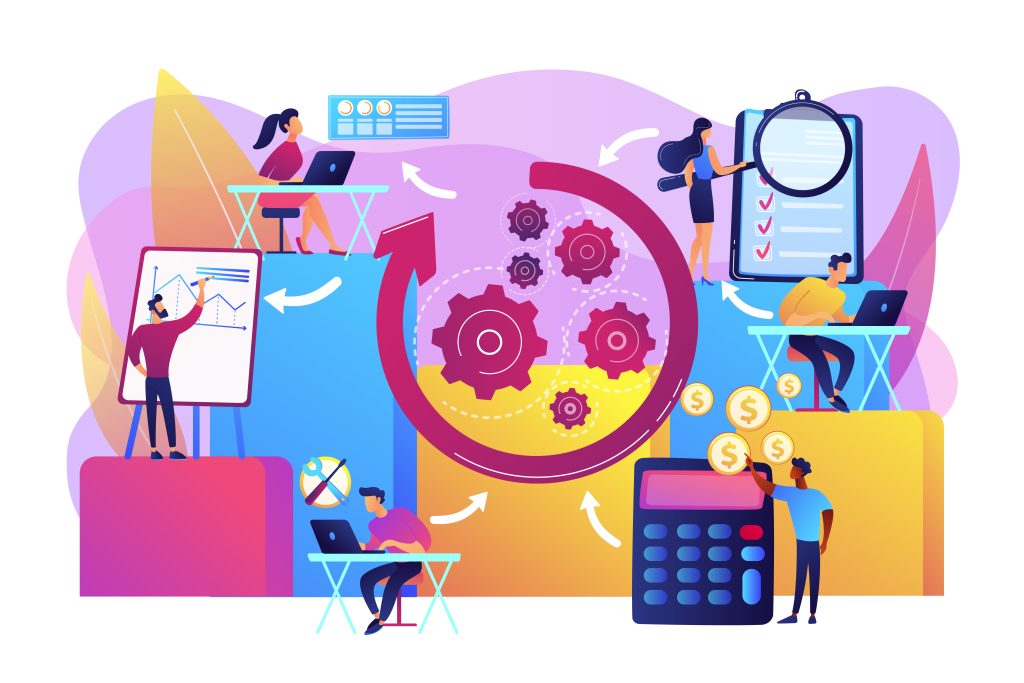
ERP solutions encompass comprehensive modules tailored to specific business functions, including finance, procurement, inventory management, sales, and more. The integration of these modules results in the harmonization of processes across departments. For instance, when a sales order is initiated, ERP automates the updating of inventory levels, triggers production processes, and manages financial transactions in a synchronized manner. This streamlined process flow significantly minimizes errors, reduces lead times, and elevates overall customer satisfaction. ERP’s efficiency in managing cross-functional processes ensures a smoother operation with fewer disruptions.
Advanced Analytics and Reporting

ERP solutions deliver potent analytical capabilities, empowering organizations to distill meaningful insights from vast data repositories. These analytics are instrumental in identifying trends, patterns, and correlations within the organization’s operations. Armed with these insights, businesses can pinpoint areas for improvement and seize new opportunities with precision. Moreover, customizable reports furnish real-time visibility into key performance indicators (KPIs), enabling prompt corrective actions and informed decision-making. ERP’s robust analytical capabilities enable organizations to leverage data as a strategic asset, supporting their quest for operational excellence.
Better Customer Relationship Management (CRM)
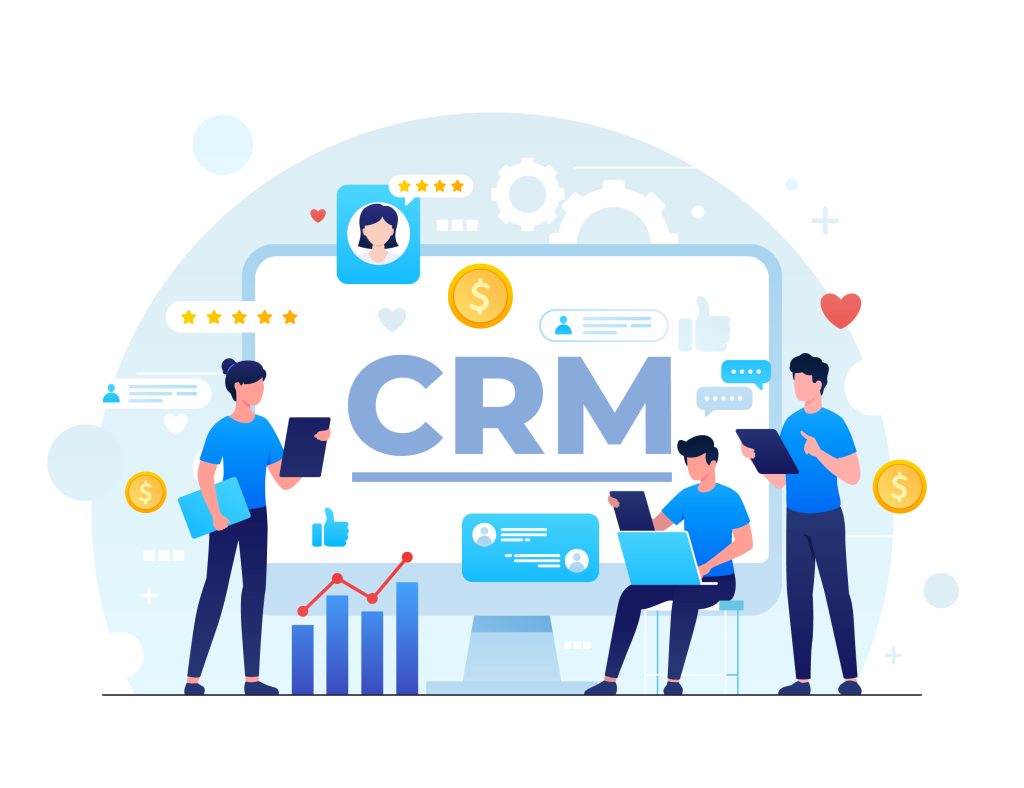
ERP solutions often encompass robust CRM modules, providing organizations with an all-encompassing view of customer interactions and preferences. This panoramic perspective empowers businesses to deliver personalized customer service, execute precisely targeted marketing campaigns, and implement effective customer retention strategies. Consequently, businesses can cultivate more enduring and profound customer relationships, fostering loyalty and engendering repeat business. The integration of CRM into ERP systems enhances customer-centric approaches, allowing organizations to respond adeptly to evolving customer needs and preferences.
ERP solutions present a comprehensive and integrated approach to business management, fostering efficiency, collaboration, and informed decision-making. By automating processes, providing real-time data access, and offering advanced analytics, ERP empowers organizations to stay competitive, achieve growth, and deliver exceptional customer experiences. As a cornerstone of modern business success, ERP continues to revolutionize the way organizations operate and thrive in today’s complex and interconnected world.
Types of ERP Solutions
On-Premises ERP involves the implementation of traditional ERP software within an organization’s own physical infrastructure. This approach necessitates the procurement, installation, and maintenance of hardware and software on-site. In-house IT resources are crucial for overseeing tasks such as system maintenance, troubleshooting, upgrades, and ensuring data security. This model grants organizations full control over their ERP system, enabling them to customize and implement security measures tailored to their specific needs and standards. While the initial investment for on-premises ERP can be higher due to hardware and software acquisition, it may lead to lower long-term operational costs.
Cloud-Based ERP Cloud-Based ERP represents a paradigm shift, as ERP software is hosted and managed by an external service provider on remote servers. This eliminates the need for organizations to maintain their own physical servers and infrastructure. Instead, users access the ERP system via the internet, typically through a subscription-based model. This model offers high scalability, allowing organizations to effortlessly adjust resources to match fluctuating demands. Accessibility is a key advantage, with users able to access the ERP system from anywhere with an internet connection, providing enhanced flexibility and mobility. Moreover, maintenance, updates, and security are the responsibility of the service provider, relieving the burden on in-house IT resources.
Industry-Specific ERP solutions are tailored to cater to the distinct operational requirements of specific industries. These ERP systems come pre-equipped with features and functionalities designed to align with the workflows, regulations, and unique challenges of targeted industries such as manufacturing, healthcare, or retail. The customization within these solutions enables organizations to streamline processes, boost productivity, and adhere more effectively to industry-specific standards and regulations. Furthermore, these ERP systems are often adept at integrating seamlessly with industry-specific tools and software, contributing to overall operational efficiency.
When selecting an ERP solution, organizations should conduct a comprehensive evaluation, taking into account factors such as feature sets, scalability to ensure the best fit for their specific operational requirement.
Based on Characteristics ERP can be categorised into
Custom-built ERP Solutions
Custom-built ERP solutions are tailor-made systems designed to meet the specific needs and requirements of a particular company. These solutions are crafted from the ground up, taking into consideration the unique processes and workflows of the business. The advantage of a custom-built ERP system lies in its ability to seamlessly integrate with existing systems and optimize performance. To embark on this endeavor, it is highly recommended to consult with professional ERP developers or engage a reputable ERP development company. They will work closely with your team to comprehensively understand your business processes, analyze requirements, and construct a solution that aligns perfectly with your operations. This collaborative approach ensures that the ERP system not only meets current needs but also has the flexibility to adapt to future changes in the business environment.
Ready-made ERP Solutions
SAP Business One
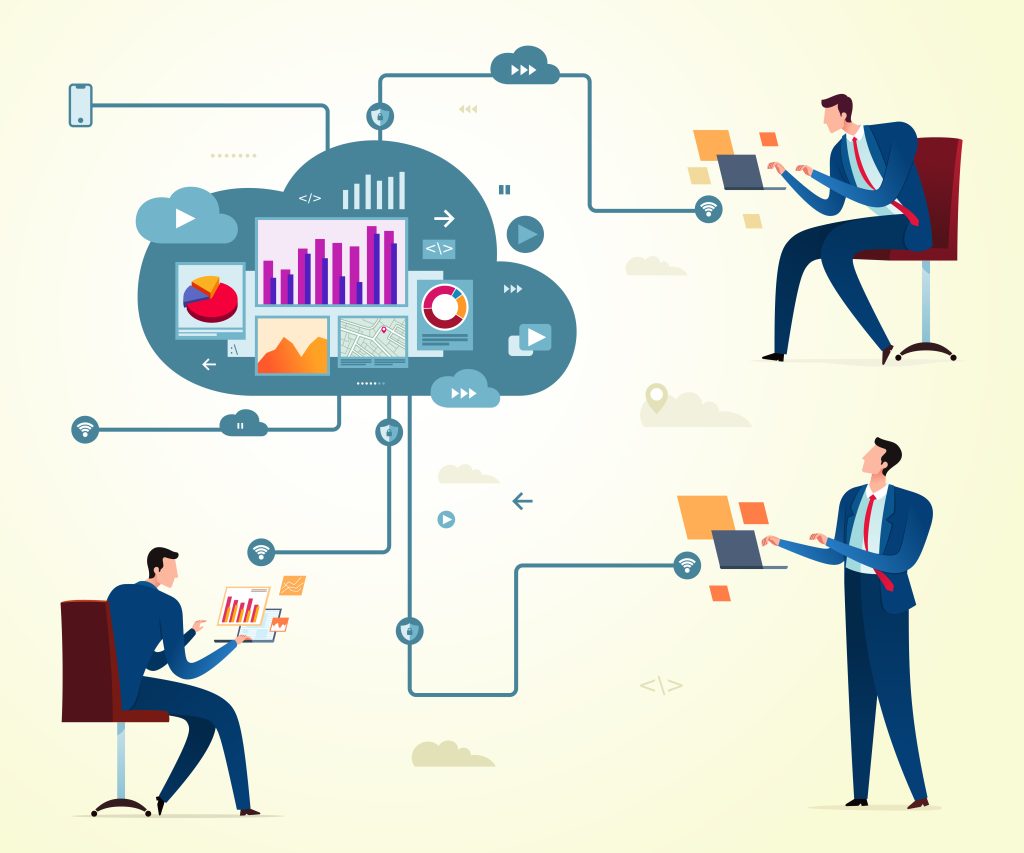
SAP Business One is a widely adopted ERP solution designed specifically for small to midsize businesses. It offers a diverse set of modules encompassing finance, sales, inventory management, customer relationship management (CRM), and more. This comprehensive suite of tools provides a unified platform for managing core business operations. The benefits of SAP Business One include streamlined processes, real-time insights into business performance, seamless integration with third-party applications, and scalability to accommodate business growth. It serves as an effective solution for businesses seeking a robust, out-of-the-box ERP system that can be quickly implemented and tailored to their specific needs.
Microsoft Dynamics 365
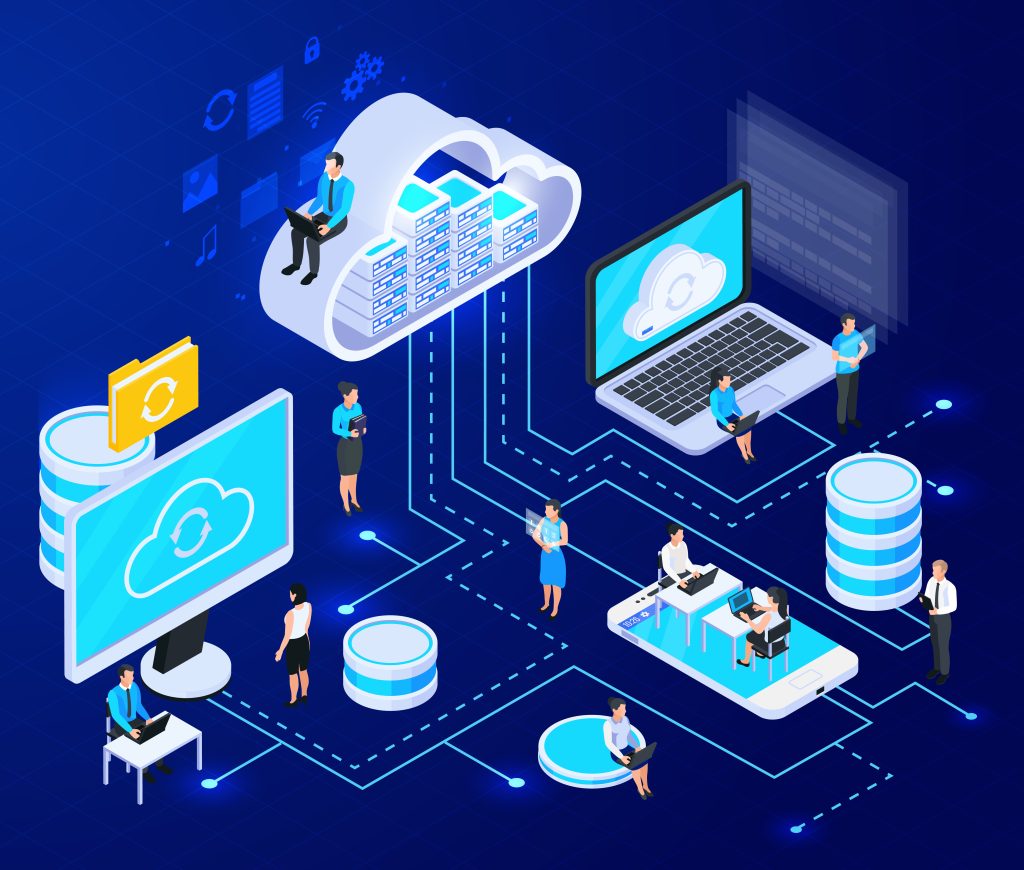
Microsoft Dynamics 365 is a versatile ERP solution offering both cloud-based and on-premises deployment options. It caters to businesses of varying sizes, providing a suite of applications covering finance, supply chain management, sales, and more. One of its key strengths lies in its seamless integration with other Microsoft tools and services, making it an attractive choice for organizations already invested in the Microsoft ecosystem. Additionally, Dynamics 365 offers scalable features that can adapt to changing business requirements, advanced analytics and reporting capabilities, as well as AI-driven insights for data-driven decision-making.
Oracle NetSuite

Oracle NetSuite is a cloud-based ERP system known for its flexibility and industry-specific functionalities. It provides a unified platform for managing a wide array of business processes including financials, inventory management, CRM, and e-commerce. The cloud-based deployment model offers accessibility and scalability, making it suitable for businesses of various sizes. Furthermore, NetSuite is highly customizable, allowing for the adaptation of industry-specific features to meet unique operational demands. The system provides real-time visibility into financial and operational data, empowering organizations with the information needed for strategic decision-making
Hybrid ERP Solutions
Acumatica
Acumatica offers a unique hybrid ERP model, allowing businesses to deploy the system either on-premises or in the cloud. This flexibility caters to organizations with specific IT infrastructure preferences. Acumatica provides a comprehensive suite of applications covering financials, distribution, project management, and more. Its strengths lie in its robust functionality across diverse business processes, integration capabilities with other business applications, and scalability to accommodate growth and changing requirements. This makes Acumatica an appealing choice for businesses seeking a versatile ERP solution that can adapt to their specific hosting needs.
Epicor ERP

Epicor ERP offers a combination of cloud and on-premises deployment options and specializes in industry-specific solutions. It provides features tailored to the unique needs of sectors such as manufacturing, distribution, and retail. Epicor’s strength lies in its industry-specific functionalities, enhancing operational efficiency for businesses in these sectors. The hybrid deployment options offer flexibility in hosting, allowing businesses to choose an approach that aligns with their infrastructure strategy. Additionally, Epicor offers advanced reporting and analytics capabilities, as well as a comprehensive suite of modules for end-to-end business management. This makes it a compelling choice for organizations seeking an ERP solution that caters to their specific industry requirements.
FUN FACTS
- NASA has utilized ERP systems to manage complex operations and logistics for space missions. ERP helps in managing supplies, equipment, personnel, and other resources required for successful space missions.
- Coffee chain Starbucks implemented an ERP system to streamline its operations, improve supply chain efficiency, and enhance the customer experience.
- In the hit TV show “The Office,” the fictional paper company Dunder Mifflin adopts a poorly implemented ERP system called “Michael Scott’s Dunder Mifflin Scranton Meredith Palmer Memorial Celebrity Rabies Awareness Pro-Am Fun Run Race for the Cure.”
- In recent times, ERP has been used in ambitious projects like the conservation and restoration of the Great Wall of China. The system helped manage funds, resources, and project progress during this massive undertaking.
- The United States Federal Bureau of Investigation (FBI) once spent over $600 million on an ambitious ERP project called “Virtual Case File” to modernize its case management systems.
Say goodbye to manual tasks and embrace automation with Pangrow’s intuitive ERP software – revolutionize your operations. CLICK here now to get started.
All images belong to their respective owners. Please email [email protected] if removal is required.

